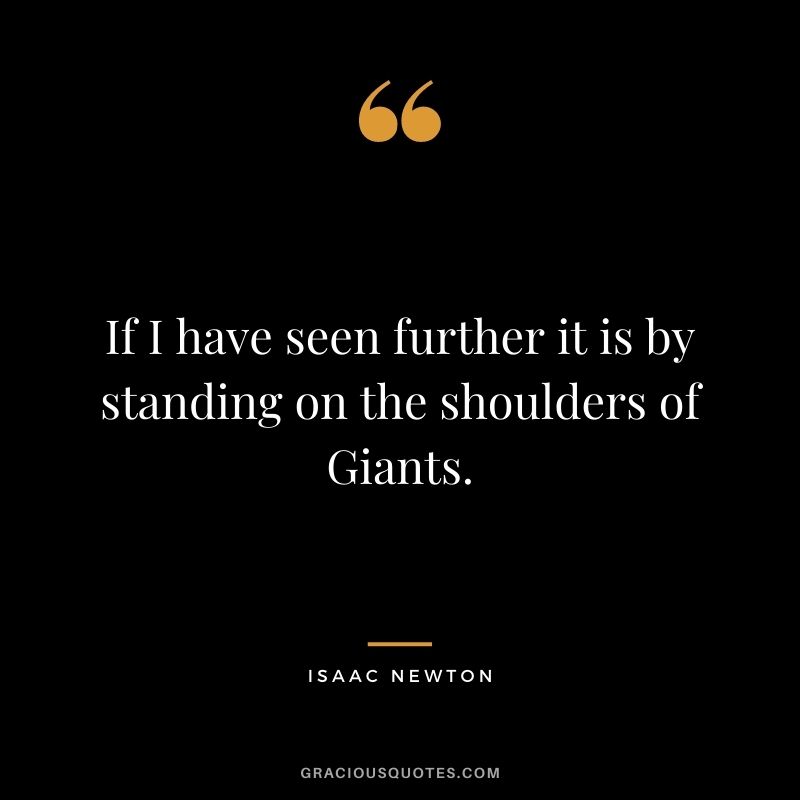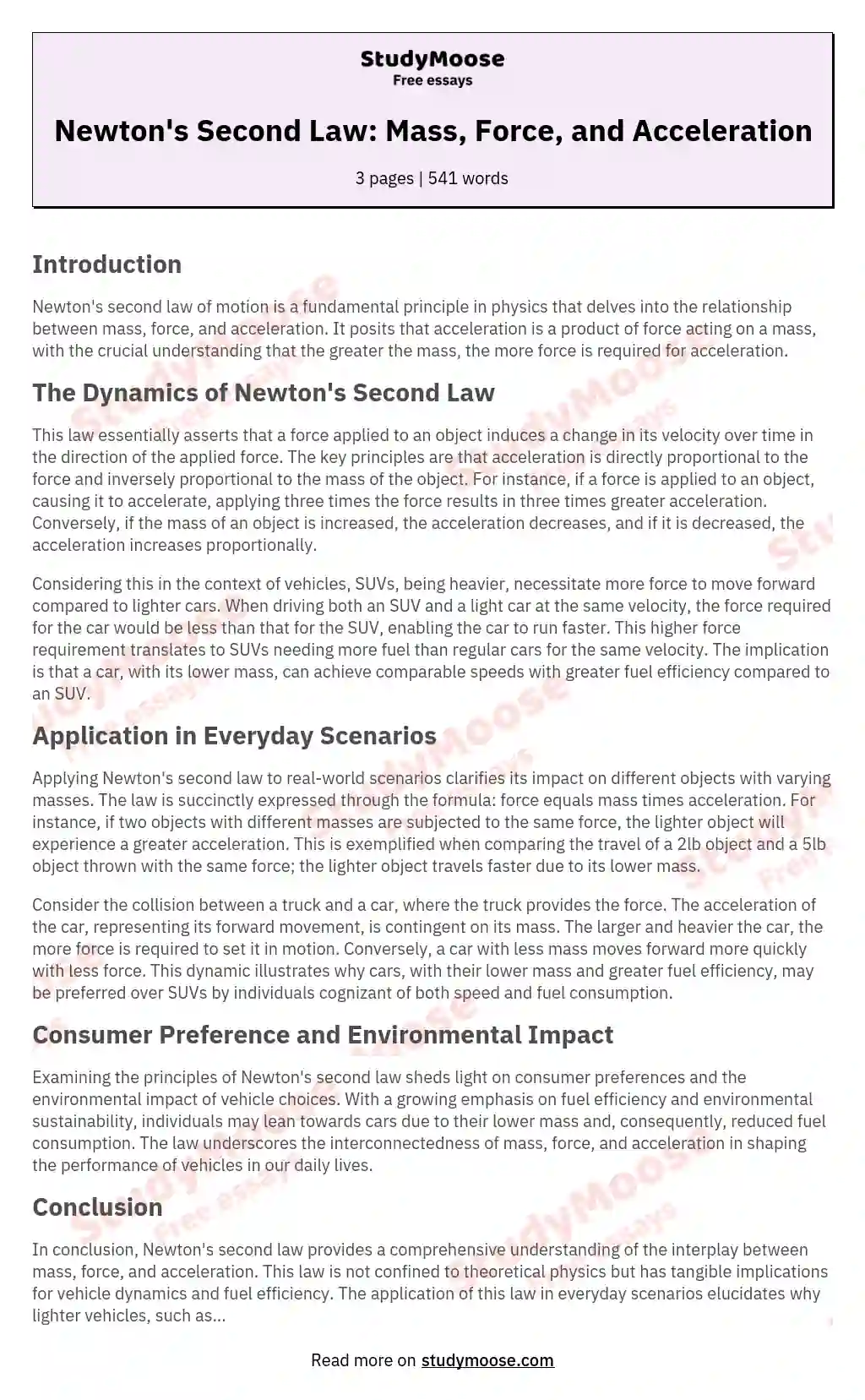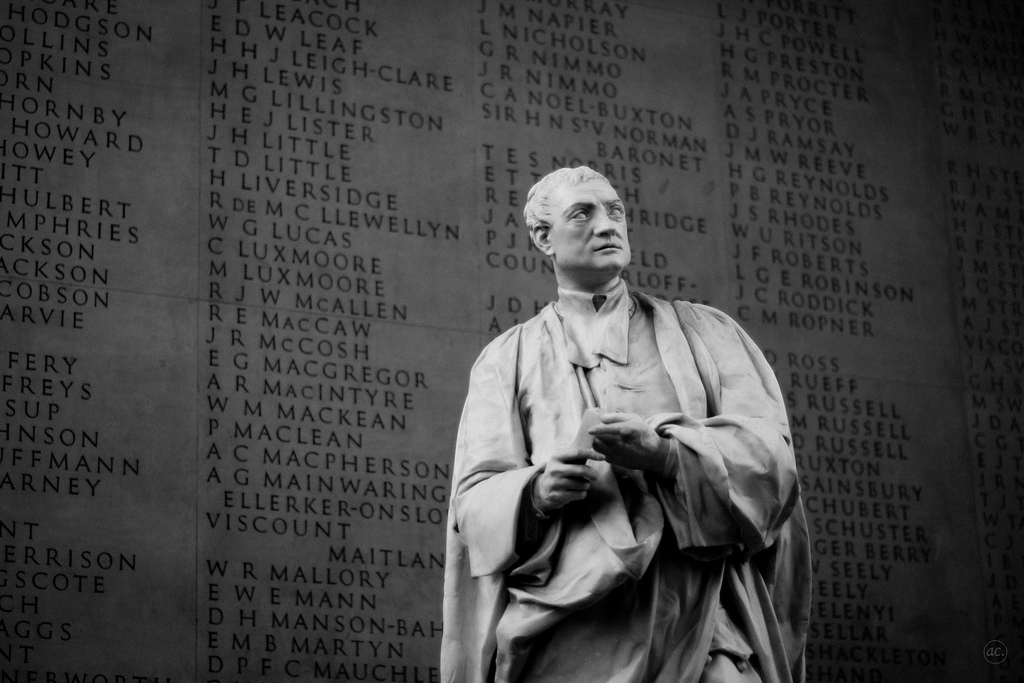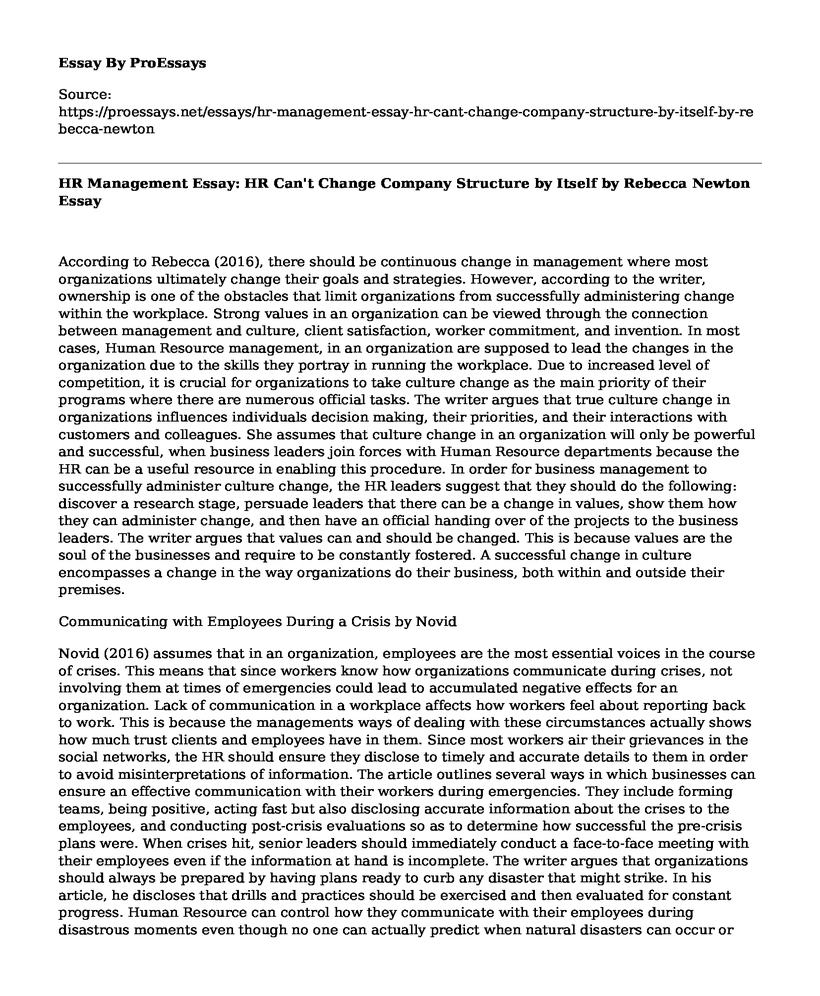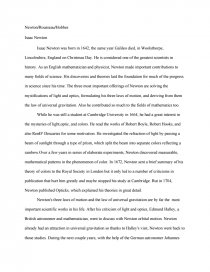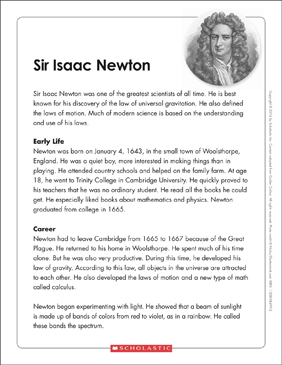Sir Isaac Newton was a British scientist and mathematician who is widely regarded as one of the most influential figures in the history of science. Born in 1642, Newton made groundbreaking contributions to the fields of mathematics, physics, and astronomy, and his work laid the foundation for much of the modern scientific understanding of the world.
One of Newton's most famous contributions was his development of the laws of motion and universal gravitation. These laws, which are now known as Newton's laws of motion, describe the way objects move and interact with one another. The first law states that an object will remain at rest or in motion at a constant velocity unless acted upon by an external force. The second law states that the force acting on an object is equal to the mass of the object multiplied by its acceleration. The third law states that for every action, there is an equal and opposite reaction.
In addition to his work on the laws of motion, Newton made significant contributions to the field of mathematics. He developed the concept of calculus, which is a branch of mathematics that deals with the study of change and motion. Calculus has become an essential tool in many fields, including engineering, economics, and physics.
Newton's work in astronomy was also groundbreaking. He developed a theory of the nature of light and color, and he built the first practical reflecting telescope. His theory of the nature of light, known as the corpuscular theory, proposed that light is made up of tiny particles, or corpuscles, that are emitted by a light source and travel through space. This theory helped to explain many of the phenomena observed in the behavior of light, and it laid the foundation for much of the modern understanding of optics.
In addition to his scientific work, Newton was also an accomplished philosopher and theologian. He wrote extensively on the nature of God, the universe, and the nature of human understanding. His work in these areas was highly influential and helped to shape the philosophical and theological debates of the time.
Overall, Sir Isaac Newton was a towering figure in the history of science. His contributions to mathematics, physics, and astronomy have had a lasting impact on the way we understand the world, and his work continues to be studied and admired to this day.
Sir Isaac Newton was a brilliant scientist and mathematician who made significant contributions to the fields of physics and mathematics. He is best known for his laws of motion, which form the basis of classical mechanics, and his theory of universal gravitation, which explains the gravitational force that operates between objects in the universe.
Newton was born in 1643 in the small town of Woolsthorpe-by-Colsterworth in Lincolnshire, England. As a child, he showed an early aptitude for mathematics and science, and he was sent to Cambridge University to study at the age of 18. While at Cambridge, Newton began to develop his ideas about motion and gravity, which would eventually lead to his famous laws of motion and theory of universal gravitation.
One of Newton's most famous contributions to science was his three laws of motion, which he published in his 1687 work "Principia Mathematica." These laws describe the relationship between a body and the forces acting upon it, and they form the basis of classical mechanics. The first law, also known as the law of inertia, states that a body at rest will remain at rest unless acted upon by an external force, and a body in motion will remain in motion with the same speed and in the same direction unless acted upon by an external force. The second law states that the force acting on a body is equal to the mass of the body multiplied by its acceleration, or F = ma. The third law states that for every action, there is an equal and opposite reaction.
In addition to his laws of motion, Newton is also known for his theory of universal gravitation, which explains the gravitational force that operates between objects in the universe. This theory, published in the "Principia Mathematica," states that every object in the universe exerts a gravitational force on every other object, and that this force is directly proportional to the mass of the objects and inversely proportional to the square of the distance between them. This theory was able to successfully explain the orbits of the planets around the sun and other celestial phenomena, and it remains a fundamental concept in modern physics.
Newton's contributions to science and mathematics have had a profound impact on our understanding of the world and the way it works. His laws of motion and theory of universal gravitation have formed the foundation for much of modern physics and have influenced many other fields of science, including astronomy, engineering, and chemistry. He is considered one of the greatest scientists in history, and his work continues to be studied and revered by scientists and mathematicians around the world.
